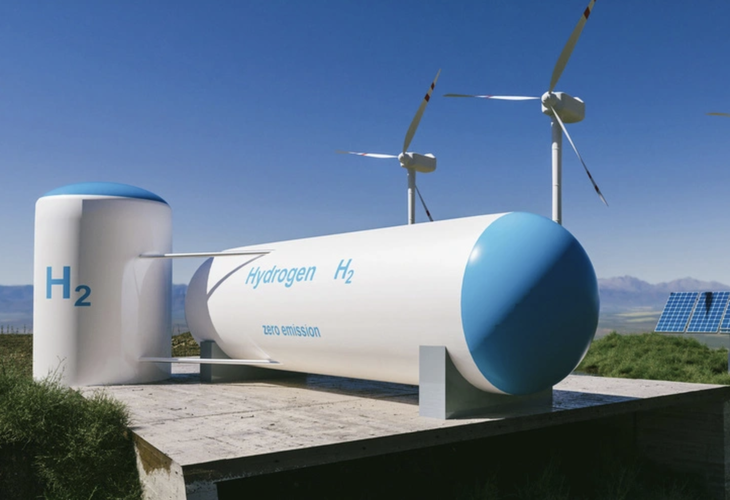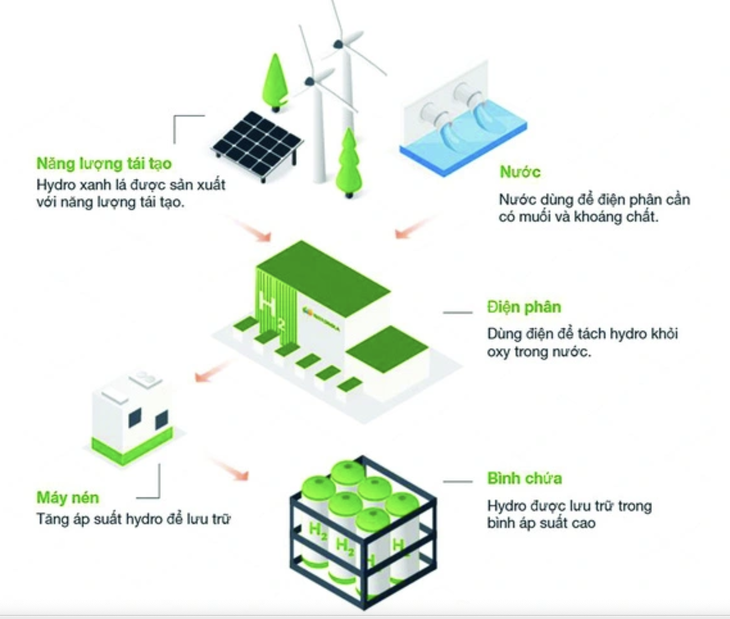Hydrogen energy is an energy source that many countries in the world are prioritizing to develop today to replace fossil fuels.

Egypt plans to spend up to $4 billion to produce green hydrogen energy through water electrolysis - Photo: norvanreports.com
The Ministry of Industry and Trade has just submitted a document to the Prime Minister on approving the strategy on hydrogen energy production until 2023, with a vision to 2050 on November 1.
According to the Ministry of Industry and Trade, worldwide, hydrogen energy is considered a clean energy source, indispensable in the energy structure of many countries to achieve the goal of carbon neutrality by 2050.
Specifically, by early 2023, more than 40 countries had issued National Strategies on Hydrogen Energy along with major financial support policies to form and develop the hydrogen industry.
Some typical leading countries include the EU, Germany, Denmark, the Netherlands, Australia, Canada, the US... In which, the EU has set a target of reaching 13-14%, Japan and South Korea are 10% and 33% respectively in terms of the proportion of hydrogen energy in the energy structure by 2050.
Recently, the US announced a hydrogen development strategy with the goal of achieving 10 million tons of clean hydrogen/year by 2030 to eliminate carbon in the ammonia production and oil refining sectors, increasing to 50 million tons/year to expand the scope of hydrogen applications by 2050.
In Vietnam, the Ministry of Industry and Trade proposed that Vietnam set a target of producing 100,000 - 500,000 tons of hydrogen by 2030, and increasing to 10 - 20 million tons by 2050.
This amount is equivalent to 5 - 10% of domestic energy demand, meeting the target set in the national energy plan.
Hydrogen energy is expected to serve mainly in the fields of electricity production, transportation and other industries (oil refining, fertilizer, metallurgy, cement...).
What is hydrogen energy?
Hydrogen energy is a secondary energy source, not available for direct exploitation but needs to be generated from an initial primary source such as water or hydrocarbon compounds.
To produce hydrogen, it is necessary to electrolyze water or electrochemically or thermochemically process hydrocarbon fuels such as water, oil, methane, natural gas, gasified coal, biofuels, gasified biomass...
Once produced, hydrogen is stored and used to generate electricity when needed. This storage is done using fuel cells.

Part of the green hydrogen production process - Source: Iberdrola Renewable Energy Company
Tuoitre.vn




































































































Comment (0)